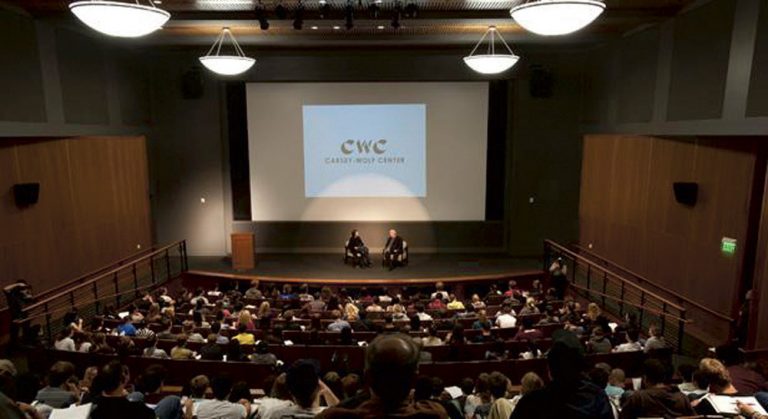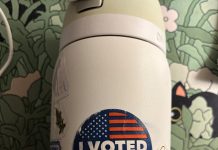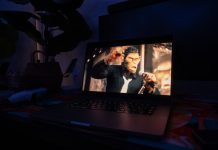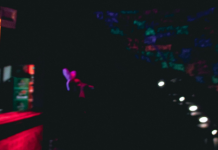
Jennica Martin
Staff Writer
Last Thursday, the Pollock Theater hosted the Festival of (In)appropriation, a film festival dedicated to short films and videos that are completely composed of repurposed footage and/or audio. The Carsey-Wolf Center, a media research center at the University of California, Santa Barbara, showed 12 films, each of them distinctly different from the next, but all of them with new meanings different from the original works. There was a Q&A after the showing with one of the program’s curators, G.D. Cohen, and Professor Constance Penley from UCSB’s film studies department.
The first film shown was Astro Black: We Are the Robots, an Australian short film that took scenes from Close Encounters of the Third Kind and the original Star Trek series and also included iconic musical figures like David Bowie and Sun Ra. Penley called this film possibly the “most appropriative” out of the rest because of how it takes these classic science fiction films and changes their meaning to emphasize the musical aspect of it. In response to that, Cohen explained that he believes that art was meant to be “displaced” and “removed from its context,” because once the art is released, its meaning is derived from the artist and the people who view it.
Cohen and Penley both highly praised The Plastic Garden. This film extracted and manipulated images from the video game Call of Duty: Black Ops. It took images, particular from the “Nuketown” map, and focused on the Cold War-era fears of a nuclear apocalypse. It also included an audio clip from the well-known “Duck and Cover” jingle that was created during the Cold War. Cohen stated that the panel receives an entry that includes that audio clip every year, but they believed that it actually worked well with this entry. Cohen also stated that they chose this film “because of the innovative things it was doing.”
Another film that stood out from the others was the film Notes from a Polish Jew, primarily because it had no audio. In this film, the filmmaker tries to reimagine how his father might have filmed his return to Poland by using footage his colleague filmed when he visited Poland. This film utilizes many different styles and filmmaking processes to create a personal story. Cohen explained that the filmmaker used both parts of a double 8 film and then explains the whole process of it:
“With double 8, it runs through the camera once and films on one side, on a strip of 16 mm film, and then you flip the cartridge over, and it runs again,” Cohen said. “Now you’ve got two sides of a strip of 16 mm film that are exposed in opposite sides. And then you send it to a lab and they split it across the middle.” This complex process gives the audience a greater sense of the work that goes into creating film and as Penley states, “to really appreciate this film, you have to understand the process of it.”
After all of the films were shown, Cohen and Penley discussed their personal interpretations of each of them and asked for opinions from audience members. Cohen also specifically talked about the process of curating.
“In principle, we pick the films first and then devise the order, but I would be lying if I didn’t say that a vague sense of what works and what doesn’t in a line up does inflect our curatorial decisions,” said Cohen. “The hard truth of the matter is that we have way too many good films every year, we have way more than we can screen.”
One audience member, Paritosh Joshi, was particularly fascinated with the films that were discarded. He thought it was “really well-curated” and a “nice selection of found footage” but he was still interested in what was taken out, especially after Cohen explained how difficult it was to choose. His favorite film was Notes for a Polish Jew, stating that he thought “the visuals worked really well with silence.”
His appreciation for the film also reflects his appreciation of the entire festival. He said that this festival got him “thinking more about how movies are made and the process.”
This is the eighth program of the festival, with another program premiering with an entirely new line up of appropriated works next year.











